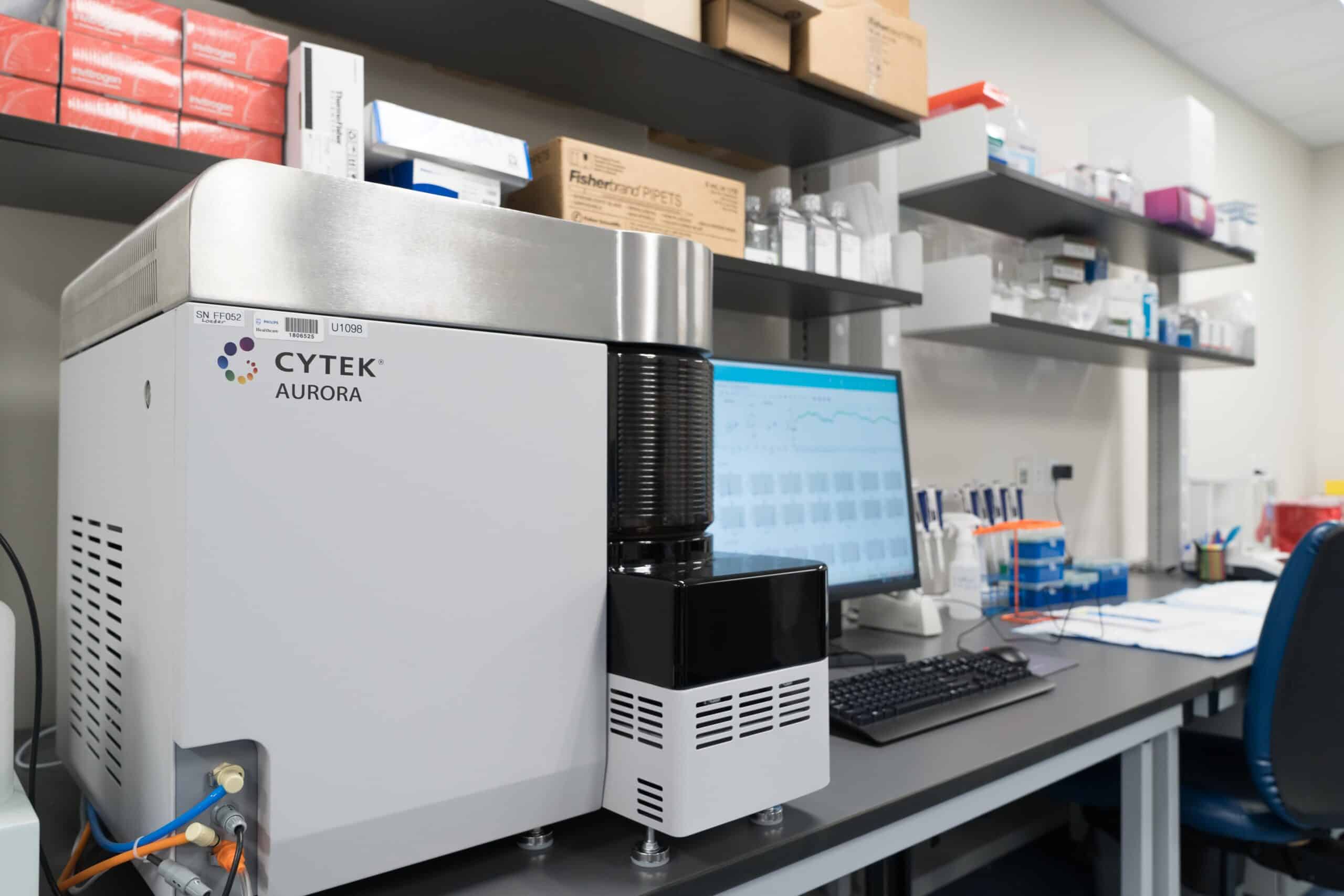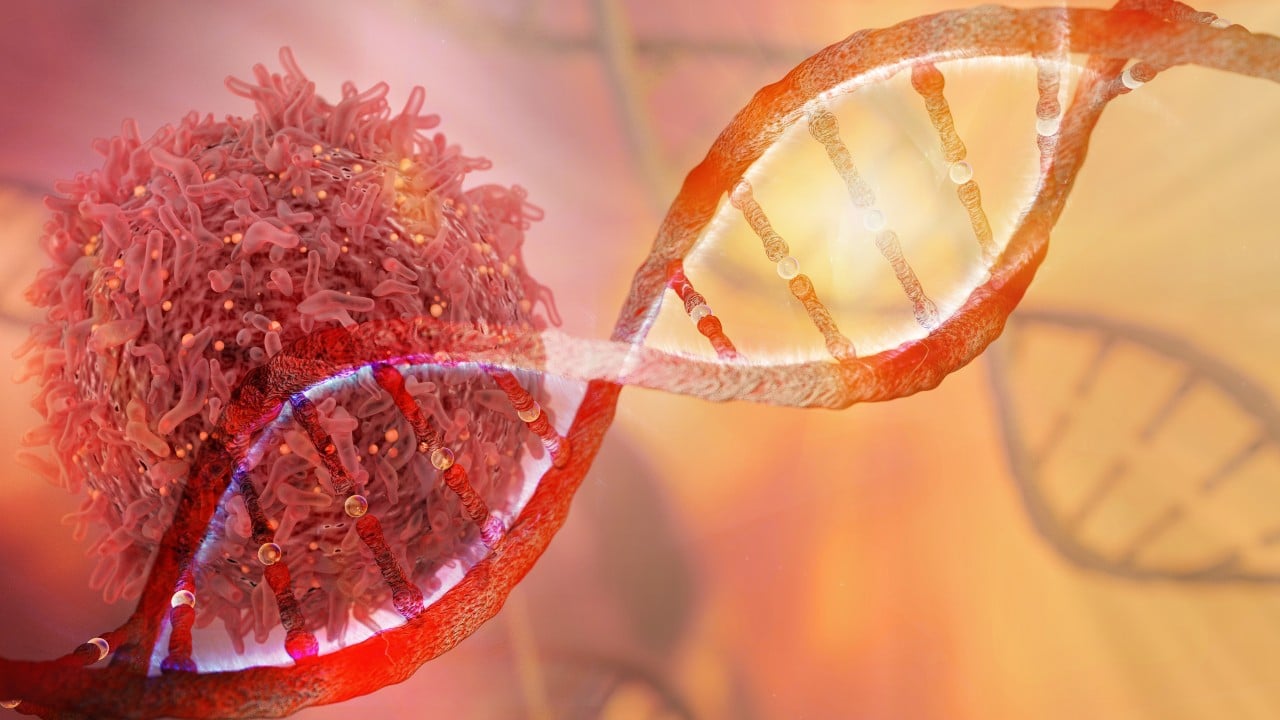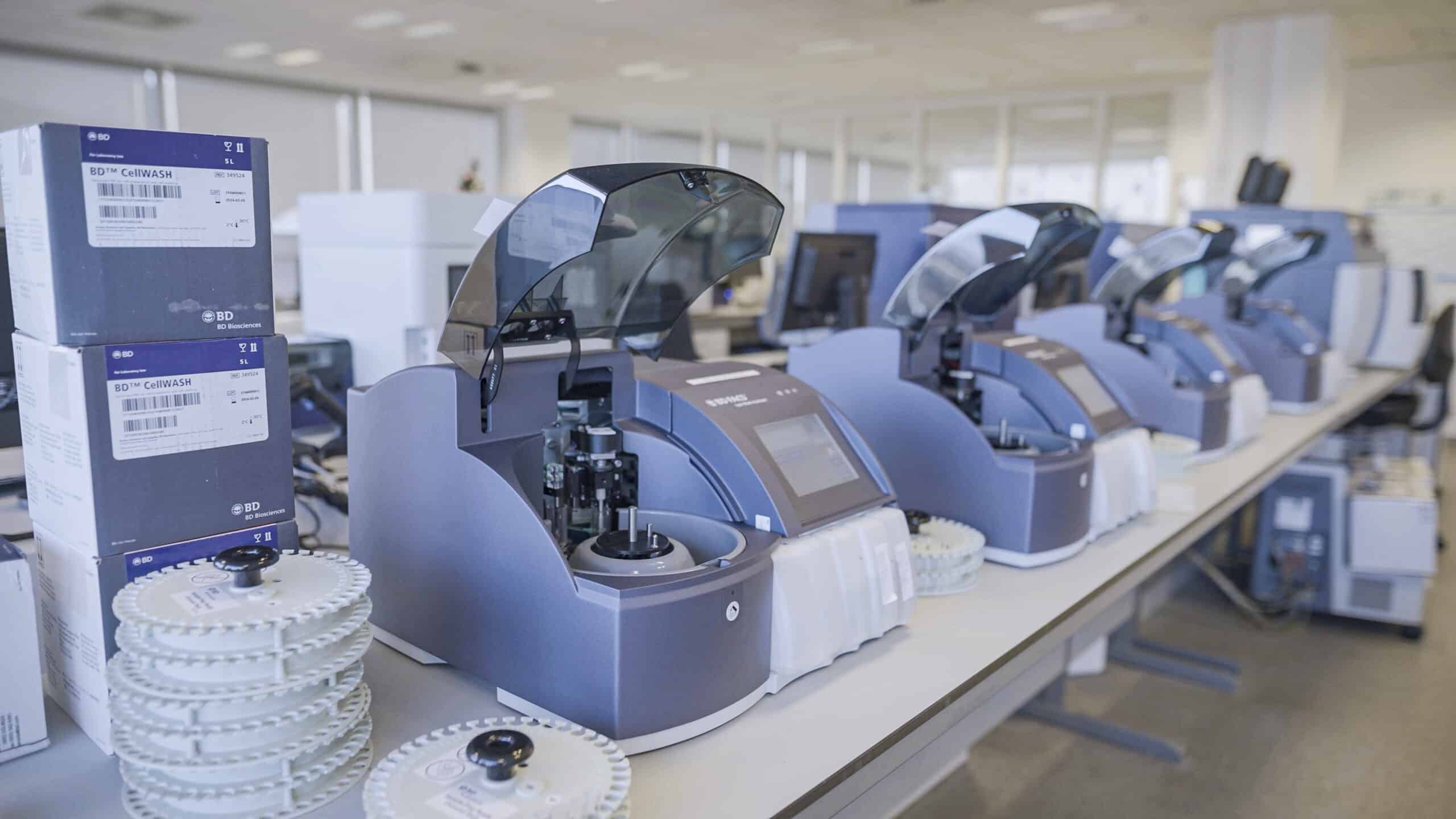The Cerba Research team will be attending ESMO 2023 in Madrid! Meet our scientists Renaud Burrer, Xavier Pichon, Rania Gaspo and discover our poster on Artificial Intelligence and its application to the analysis of solid tumors.
The ESMO Congress is Europe’s most influential oncology platform for clinicians, researchers, patient advocates, journalists and healthcare representatives from around the world. This year’s ESMO is in pink for breast cancer prevention, will showcase the latest advances in cancer treatment and offer an excellent educational program, with a multitude of opportunities for exchange between participants.
Some of our key takeaways from our Global Therapy Area Expert Oncology Rania Gaspo BPharm, PhD
ESMO Key Takeaways – Day 1
ESMO is starting strong with study data showing a significant benefit of neoadjuvant immunotherapy (I/O) in HR-positive early breast cancer for the first time. Did you know that at Cerba Research, histopathology has strong ER/PR/HER2 testing capabilities in breast cancer? Did you also know that the histopathology team has robust experience in I/O with the validation of several PD-L1 clones to be used in clinical trials as both simplex and multiplex?
2,546 abstracts have been accepted for presentation, including 108 late-breaking abstracts, many of which will be discussed at Presidential sessions. This includes one of our own abstracts accepted as a poster on artificial intelligence (AI).
An in-depth article on the latest applications of (AI) will show how they can be useful in clinical settings, from single cell analysis to image analysis, based on some new promising data presented at the Congress and a glimpse into the future.
ESMO Key Takeaways – Day 2
New data supports perioperative nivolumab for patients with resectable NSCLC: Immunology (I/O) continues to be strong with nivolumab results in earlier-stage disease in the lung. Did you know that Cerba Research has about 25 trials ongoing in I/O? Did you also know that PD-L1 is standard done with IHC for patient stratification in I/O trials and that Cerba Research has plenty of PD-L1 capabilities?
RET inhibitor nearly doubled PFS in RET fusion-positive advanced/metastatic NSCLC: Another example of using broad panel NGS assays in the lung. Cerba Research has several broad panel NGS assays that include RET detection on a global scale.
Therapies targeting the TIGIT and STING pathways offer promise: TIGIT is incorporated in the Cerba Research capabilities with IH, out of 250+ already available IHC targets.
Great progress in treating genomic subtypes of CRC: Liquid biopsies are here to stay but may be complementary to FFPE for now. Did you know Cerba Research has many liquid biopsy-specific broad panel NGS assays, globally?
From technology to clinical practice: Take-home messages are that tissue and liquid biopsy are important tools in target detection. NGS continues to be preferred, but don’t forget to do a reflex test.
ESMO Key Takeaways – Day 3
Today was all about our Ki67 poster in solid tumors with artificial intelligence (AI) in mind and client meetings to better understand their needs in the Dx space.
- We discussed novel ideas with an internationally renowned thoracic oncology pathologist on how to implement AI even further with PD-L1 clones in lung cancer
- We discussed our histopathology capabilities, our ctDNA capabilities, HLA typing, broad panel NGS assays in various solid tumors, method IHC validation for new targets in the neuroendocrine tumor space and state-of-the-art spectral flow with Cytek Aurora
- With all those fruitful conversations, we hope to broaden our reach with follow-up client calls and potential opportunities
Download our ESMO Resource Pack
Poster Presentation: AI in Immuno-Oncology
Don’t forget to stop by our poster presentation by Xavier Pichon, Principal Scientist at Cerba Research. With the poster “Evidence for the utility of artificial intelligence (AI) and image analysis in Ki-67 quantification in solid tumors”, we will be diving deeper into how Cerba Research is using AI to help transform research and advance health for patients all around the world.
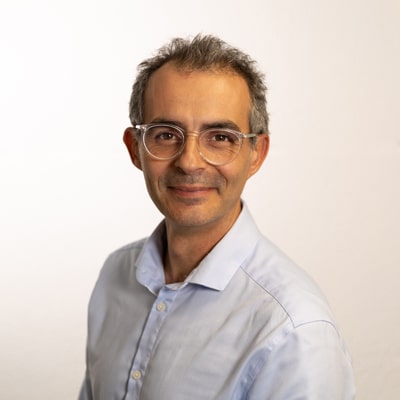
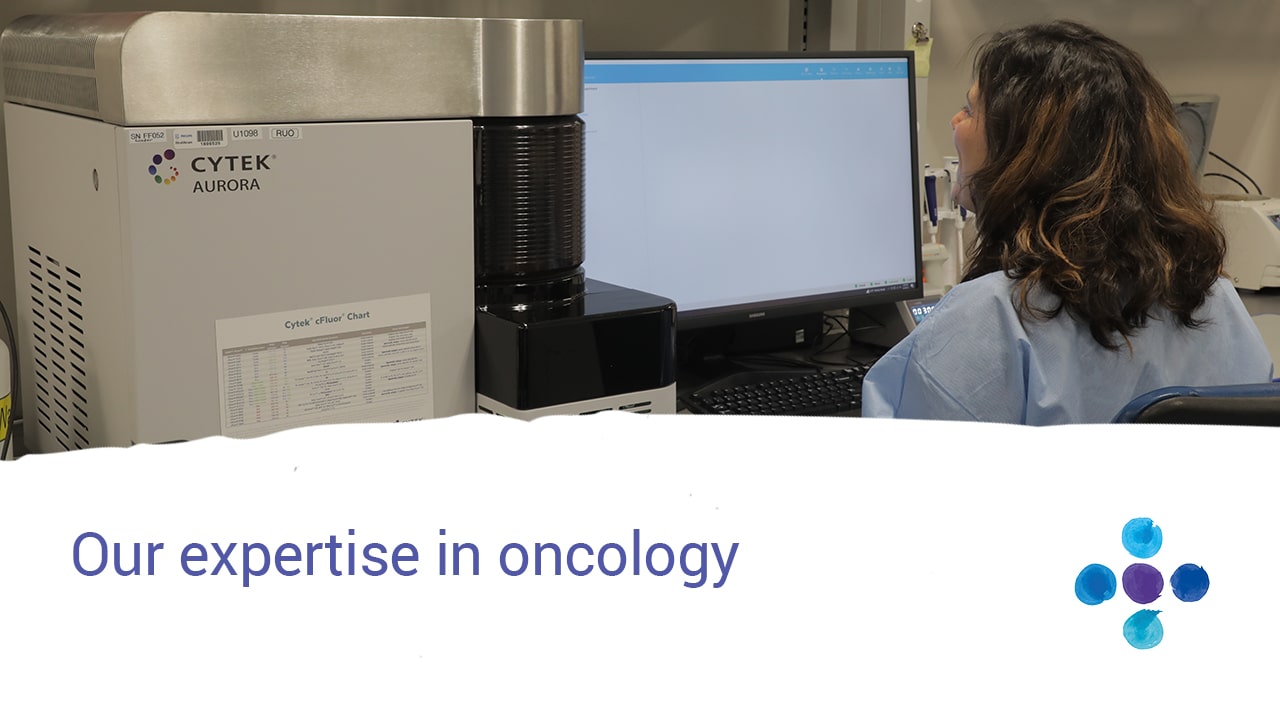
Discover how we transform research in immuno-oncology
With increased complexity in oncology protocol design and time sensitivity, we can provide you with an adaptive, specialist oncology team with access to the latest science and technology who will optimise the outcome of your clinical trials. Precision medicine development in the oncology field requires a flexible and agile speciality laboratory partner who can adjust as the protocol does, ensuring endpoints are captured. This will enable studies to move forward with the right data.
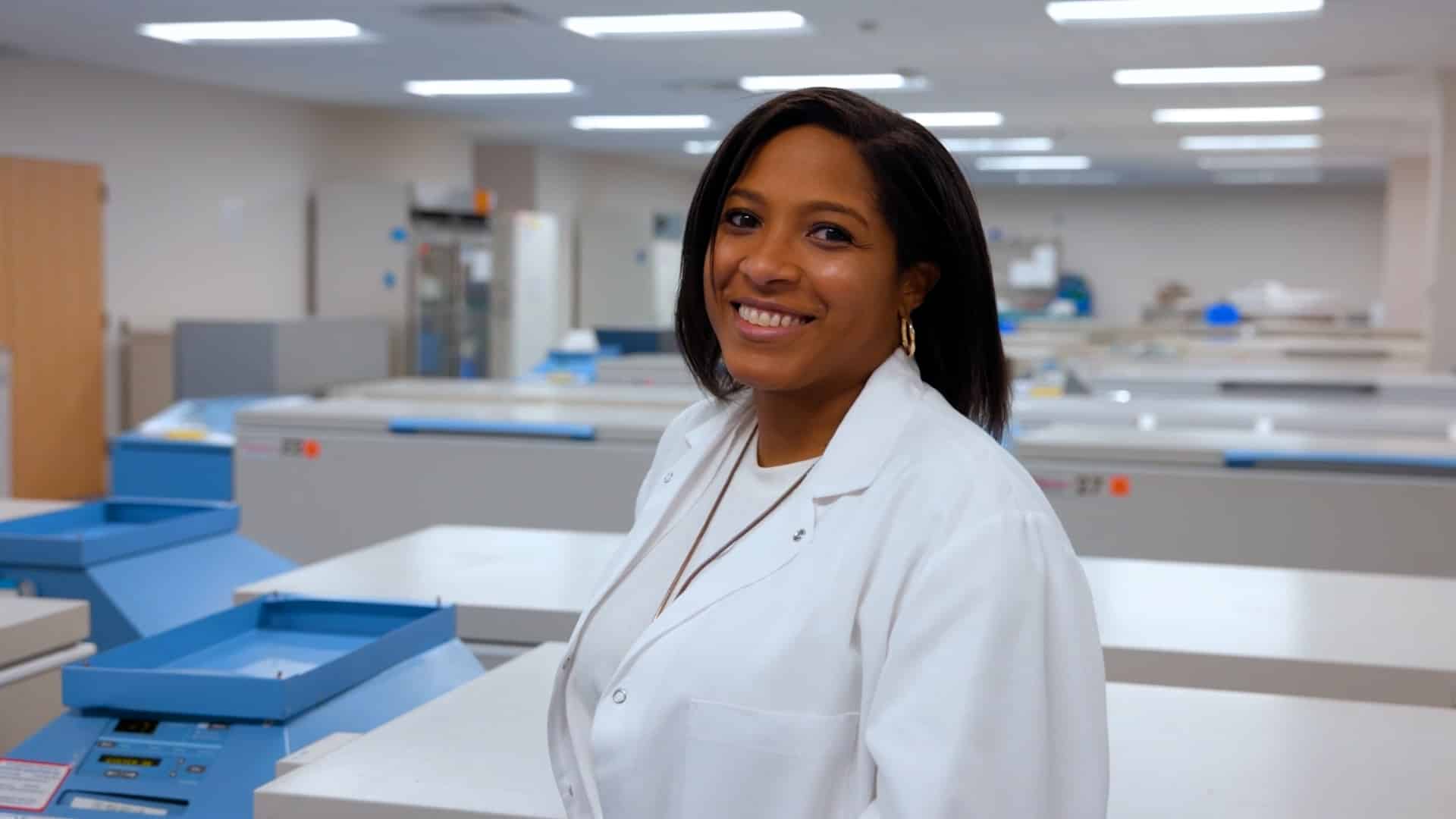
Reach out to our experts and discover how we can help you transform research and advance health
Read more

